Publicaţiile româneşti s-au declarat oripilate că preşedintele Traian Băsescu l-a enervat pe Nicolas Sarkozy, în cadrul ultimul Consiliu European, pentru că nu ar fi susţinut poziţia acestuia, ce dorea „atacuri aeriene punctuale” (AFP). Nimeni din România nu a explicat însă că ceea ce dorea Sarkozy ţine mai degrabă de ficţiune şi mai puţin de realitate. În primul rând, Sarkozy încerca să obţină în cadrul Consiliului o declaraţie politică, fără nicio urmare juridică imediată, din cel puţin două motive importante:
1. UE nu poate decide unilateral să intervină militar într-o ţară străină, fără a încălca legislaţia internaţională
2. Chiar dacă UE ar decide să intervină, nu ar avea capabilităţile militare necesare. De fapt, doar două ţări au capabilităţile necesare, Franţa şi Marea Britanie, iar Londra nu mişcă un deget fără ok-ul americanilor.
Războiul e ilegal, chiar şi când îl face UE
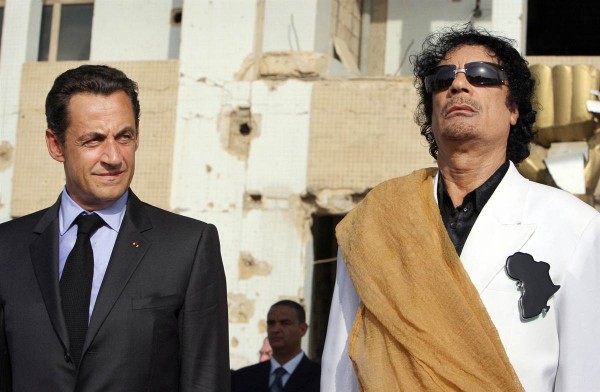
La primul punct, explicaţia este foarte simplă. Singura autoritate de pe Terra care poate decide când începe un război este Consiliul de Securitate al ONU. În caz contrar, războiul este ilegal. Singurul caz în care o ţară (sau o alianţă) îşi poate folosi forţele armate împotriva unui alt stat este în cazul unui război de apărare, împotriva unui agresor. Avem deci nevoie de o rezoluţie a CS al ONU, sub capitolul VII, în problema libiană. Fără acest lucru, orice gargară la Consiliul European e apă de ploaie.
Cum funcţionează: În primul rând, Consiliul de Securitate al ONU, dacă va stabili că Gaddafi este responsabil pentru genocidul de la el din ţară, îi va cere acestuia să înceteze. Dacă luptele vor continua, se va vota o nouă rezoluţie care să stabilească expres organizarea unei coaliţii internaţionale („de voinţă”) care să intervină militar. Există însă mai multe probleme. În primul rând, există posibilitatea ca Rusia sau China să-şi folosească dreptul de veto. În al doilea rând, există posibilitatea ca între pasul 1 şi pasul 2 pe care l-am arătat mai sus, să avem şi paşii 1.1, 1.2, .1.3, s.a, adică o serie de rezoluţii care să-i tot ceară lui Gaddafi să pună capăt luptelor, sub ameninţarea că i se blochează conturile, nu i se mai vând haine din blană de nurcă, nu mai primeşte Evian, i se taie accesul la HBO (putem continua, inventivitatea experţilor ONU e vastă!).
În al doilea rând, Uniunea Europeană nu are capabilităţi militare ce pot interveni ca forţe combatante. Suntem abia la început în ceea ce prioveşte organizarea unor forţe de ordine şi stabilizare post conflict (EULEX Kosovo). Dacă ne amintim, în 1999, când am avut o situaţie similară în inima Europei, a fost nevoie de intervenţia NATO. Pe de altă parte, forţele militare integrate ale majorităţii statelor UE sunt sub comanda NATO.
Băsescu şi „sălbaticul”
De aceea, cu siguranţă, jurnaliştii români ar fi trebuit să se întrebe, ce naiba dorea Sarkozy în Consiliul European? Din păcate nu au făcut-o, însă din fericire, au făcut-o alţii. Presa germană susţine că poziţia lui Sarkozy arată „nivelul de testosteron, şi nu logica”(Financial Times Deutschland) şi că „Europa ar trebui să-l pună la punct pe acest sălbatic”. Până şi amica Merkel i-a transmis micului Napoleon că „liderii europeni ar trebui să se gândească mai mult înainte de fiecare pas”. Nici presa franceză nu l-a iertat pe Sarkozy, spunând ironic despre acesta că „şi-a îmbrăcat costumul de super Rambo”(La Charente Libre).
Reacţiile dure au venit inclusiv din partea unor cotidiene financiare, aşa cum este Handelsblatt: “Acţiunile lui Sarkozy au potenţat toate criticile care i s-au adus de-a lungul vremii. Franţa îşi doreşte doar prin politica sa externă; să genereze titluri de presă”.
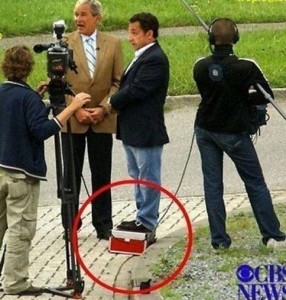
Ce ştiau jurnaliştii străini, dar nu ştiau cei români, e foarte simplu: o soluţie militară împotriva regimului lui Gaddafi nu poate avea loc decât cu capabilităţi NATO şi sub egida ONU, or, în toată povestea asta UE nu reprezintă nici un factor moral şi nici legal.
Ceea ce nu ştia Sarkozy a ştiut însă Băsescu, care i-a atras atenţia francezului că mai întâi trebuie să tragă puţin aer în piept şi apoi să deschidă gura. Din păcate, televiziunile de ştiri în loc să titreze “Dictatorul nostru, mai deştept decât al lor”, au preferat să promoveze ideea că Băse l-a supărat (vai ce oroare!) pe Nicolas.
Dar, să-i dăm cuvântul Dictatorului:
„Ori sediul problemei era câţiva kilometri mai încolo de Consiliul European, era la
sediul NATO, tot în Bruxelles. Iar joi – Consiliul a fost vineri – joi fusese Consiliul NATO, unde noi am fost reprezentaţi şi de Ministerul Apărării, şi de ambasadorul nostru şi se constatase că nu există, în primul rând, informaţiile necesare pentru analiza situaţiei şi oportunităţii acţiunii, şi, în al doilea rând, nu era o unanimitate a punctelor de vedere a statelor membre NATO. S-a amânat o nouă analiză, în vederea unei decizii, pentru marţi, pentru mâine. De ce trebui să luăm noi o decizie la Consiliul European, care nu e specializat în aşa ceva, şi să nu aşteptăm o decizie NATO? Unde vă pot spune că reprezentanţii noştri au mandat de la mine să aibă o atitudine pozitivă în raport cu o decizie care ar diminua numărul de morţi din Libia, în acest război civil. Pentru că aceasta este obiectivul principal al deciziei pe care urmează s-o ia NATO: ce facem ca să diminuăm numărul de victime”, a mai precizat Băsescu” (TVR – 14 martie 2011)





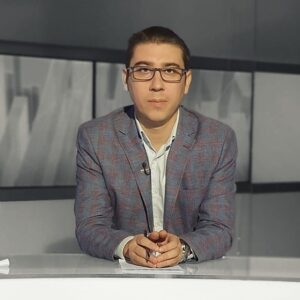


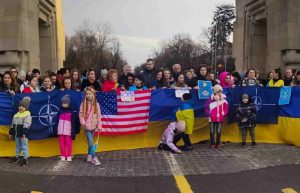

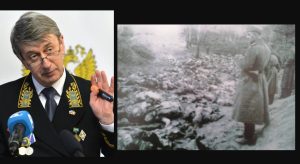

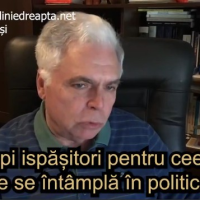

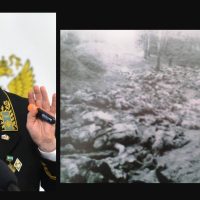
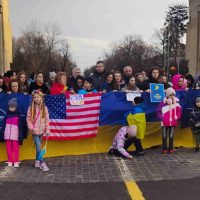
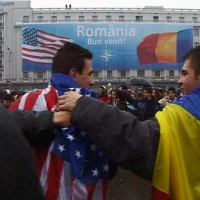
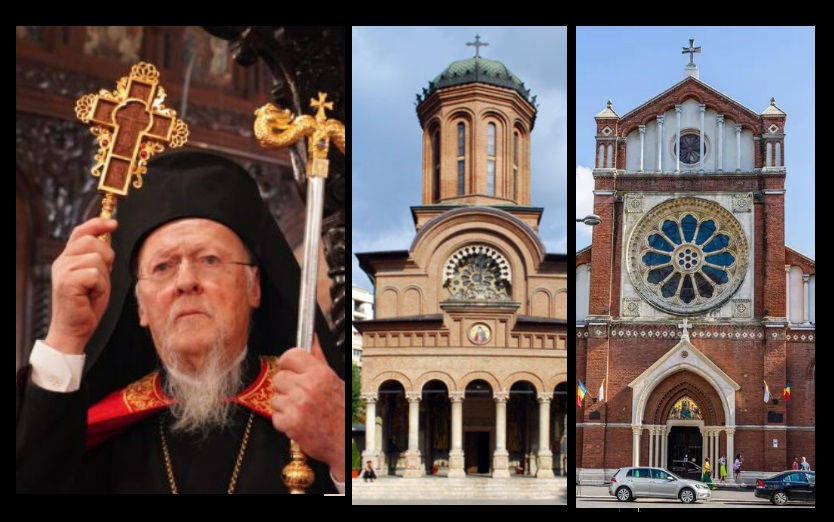
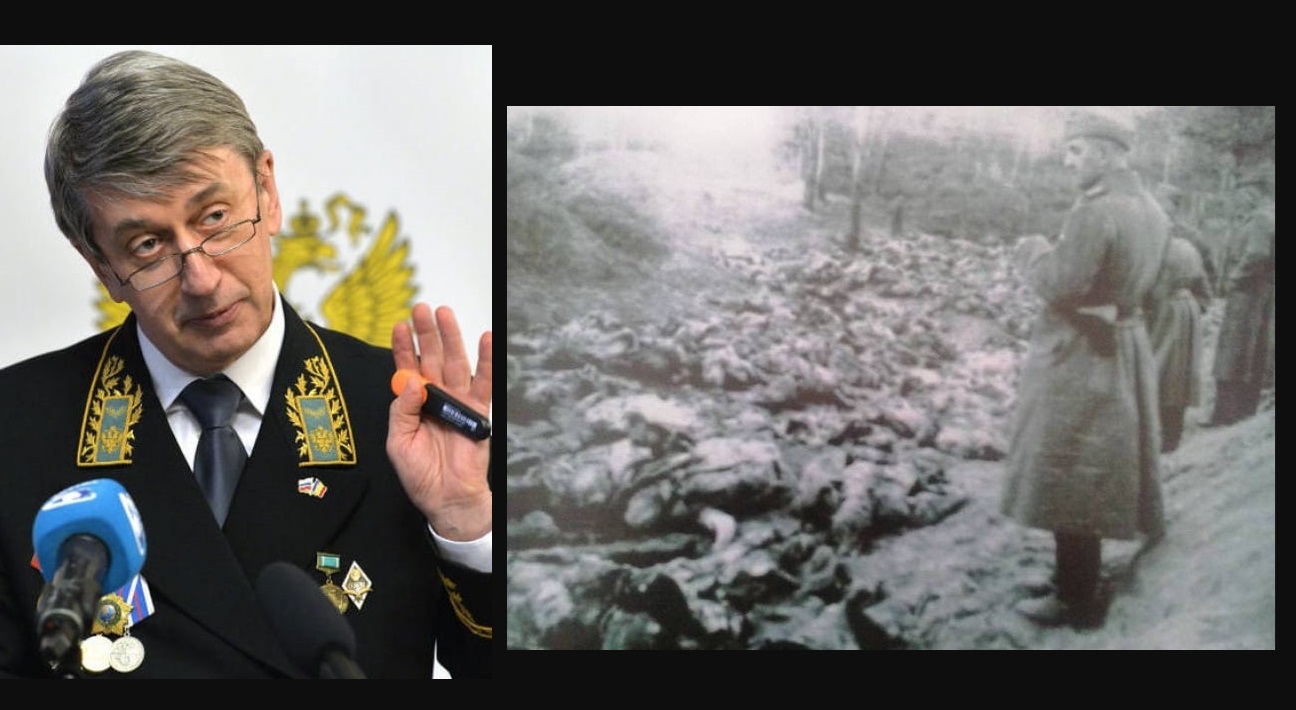
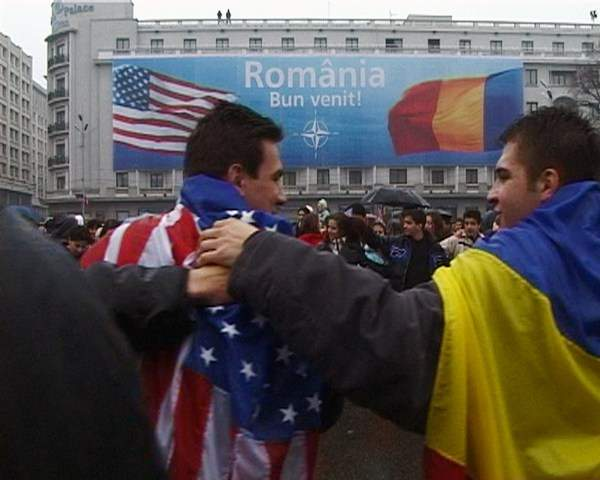
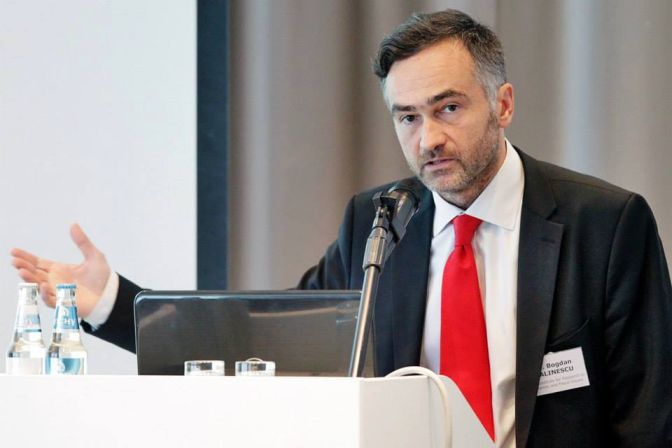
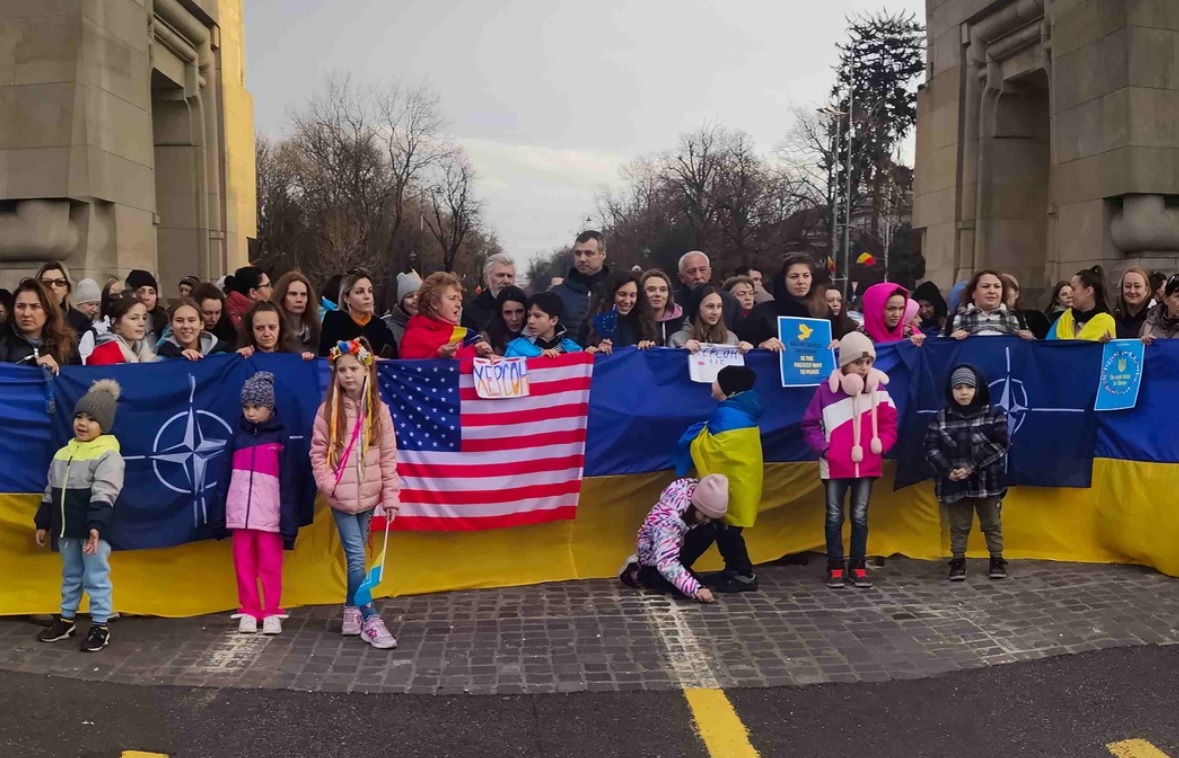



18 comentarii
Dedi
15 martie 2011Unde sunt postacii de profesie care sa-l puna la zid pe Basescu? Nu vad nici un comentariu impotriva articolului.
Anca Cernea
15 martie 2011@ 1
Dedi,
O fi cenzura implacabila a blogului nostru…
Anca Cernea
15 martie 2011Ha, ha, l-a enervat si pe Sarkozy! Dupa ce ii enervase pe rusi, pe moguli, pe securisti, pe mafioti, pe pesedisti, pe liberali, etc.
Foarte bine! D-aia i-am dat votul, ca sa-i enerveze p-astia!
Asa sa-l ajute Dumnezeu!
PS.
Cel mai mult mi-a placut ca Basescu a refuzat sa recunoasca emanatia aia, „Consiliul National de Tranzitie constituit la Bengazi”, sub conducerea ministrului de justitie al lui Gaddafi – probabil un fiu de revolutionar, el insusi revolutionar, despre care ramane sa vedem daca o fi sunat la Moscova sa spuna „cine suntem si ce vrem”.
Francesco
15 martie 2011Dupa preluarea puterii in orasul Ajdabiya, armata libiana se afla in drum spre Benghazi, bastionul insurgentei anti-Gaddafi. Saif Al-Islam Gaddafi, fiul colonelului Muamar Gaddafi, a afirmat intr-un interviu acordat retelei Euronews ca, daca presedintele Frantei nu va inceta sustinerea Consiliului National de Tranzitie – conducerea politico-militara a fortelor rebele – vor fi facute publice documentele care demonstreaza finantarea libiana a campaniei prezidentiale din 2007 a lui Nicolas Sarkozy.
„In 48 de ore, totul se va termina” a spus Saif Al-Islam, cu referire la iminentza infrangerii fortelor anti-guvenamentale.
Nea
15 martie 2011„Ce ştiau jurnaliştii străini, dar nu ştiau cei români, e foarte simplu:”
Cam totul.
Nico
15 martie 2011@Francesco
Sa nu ne grabim, mai este timp. Adica mai este timp ca Gaddafi sa castige razboiul cu Al-Qaida, readucand pacea, echilibrul si stabilitatea.
Daniel Francesco
15 martie 2011Asa este Nico, sa nu ne grabim ca stii tu cine la maritat. Uite, avem stiri din Egiptul „democratic” post-Mubarak. A fost eliberat din inchisoare Mohammad al-Zawahiri, membru al Jihadului Islamic si frate cu Ayman al-Zawahiri, celebrul second-in-command of Al-Qaeda.
Drumul catre democratie este sinuos, nu-i asa? Uite ce este scris la sfarsitul articolului de pe Al Arabiya:
Dar ce ciudat, nicaieri nu gasesc stiri despre inculparea, judecarea si condamnarea zecilor si sutelor de criminali care au indoliat numeroase familii de crestini copti din Egipt numai in ultimele luni. Oare democratia inseamna Rule of Law sau Rule of Mob?
Sueta teologica
15 martie 2011Neo-Con Hawks Take Flight over Libya
Analysis by Jim Lobe*
WASHINGTON, Feb 25, 2011 (IPS) – In a distinct echo of the tactics they pursued to encourage U.S. intervention in the Balkans and Iraq, a familiar clutch of neo-conservatives appealed Friday for the United States and NATO to „immediately” prepare military action to help bring down the regime of Libyan leader Muammar Gaddafi and end the violence that is believed to have killed well over a thousand people in the past week.
The appeal, which came in the form of a letter signed by 40 policy analysts, including more than a dozen former senior officials who served under President George W. Bush, was organised and released by the Foreign Policy Initiative (FPI), a two-year-old neo-conservative group that is widely seen as the successor to the more-famous – or infamous – Project for the New American Century (PNAC).
Warning that Libya stood „on the threshold of a moral and humanitarian catastrophe”, the letter, which was addressed to President Barack Obama, called for specific immediate steps involving military action, in addition to the imposition of a number of diplomatic and economic sanctions to bring „an end to the murderous Libyan regime”.
In particular, it called for Washington to press NATO to „develop operational plans to urgently deploy warplanes to prevent the regime from using fighter jets and helicopter gunships against civilians and carry out other missions as required; (and) move naval assets into Libyan waters” to „aid evacuation efforts and prepare for possible contingencies;” as well as „(e)stablish the capability to disable Libyan naval vessels used to attack civilians.”
Among the letter’s signers were former Bush deputy defence secretary Paul Wolfowitz; Bush’s top global democracy and Middle East adviser; Elliott Abrams; former Bush speechwriters Marc Thiessen and Peter Wehner; Vice President Dick Cheney’s former deputy national security adviser, John Hannah, as well as FPI’s four directors: Weekly Standard editor William Kristol; Brookings Institution fellow Robert Kagan; former Iraq Coalition Provisional Authority spokesman Dan Senor; and former Undersecretary of Defense for Policy and Ambassador to Turkey, Eric Edelman.
It was Kagan and Kristol who co-founded and directed PNAC in its heyday from 1997 to the end of Bush’s term in 2005.
The letter comes amid growing pressure on Obama, including from liberal hawks, to take stronger action against Gaddafi.
Two prominent senators whose foreign policy views often reflect neo-conservative thinking, Republican John McCain and Independent Democrat Joseph Lieberman, called Friday in Tel Aviv for Washington to supply Libyan rebels with arms, among other steps, including establishing a no-fly zone over the country.
On Wednesday, Obama said his staff was preparing a „full range of options” for action. He also announced that Secretary of State Hillary Clinton will meet fly to Geneva Monday for a foreign ministers’ meeting of the U.N. Human Rights Council to discuss possible multilateral actions.
„They want to keep open the idea that there’s a mix of capabilities they can deploy – whether it’s a no-fly zone, freezing foreign assets of Gaddafi’s family, doing something to prevent the transport of mercenaries (hired by Gaddafi) to Libya, targeting sanctions against some of his supporters to persuade them to abandon him,” said Steve Clemons of the New America Foundation, who took part in a meeting of independent foreign policy analysts, including Abrams, with senior National Security Council staff at the White House Thursday.
During the 1990s, neo-conservatives consistently lobbied for military pressure to be deployed against so-called „rogue states”, especially in the Middle East.
After the 1991 Gulf War, for example, many „neo-cons” expressed bitter disappointment that U.S. troops stopped at the Kuwaiti border instead of marching to Baghdad and overthrowing the regime of Saddam Hussein.
When the Iraqi president then unleashed his forces against Kurdish rebels in the north and Shia insurgents in the south, they – along with many liberal interventionist allies – pressed President George H.W. Bush to impose „no-fly zones” over both regions and take additional actions – much as they are now proposing for Libya – designed to weaken the regime’s military repressive capacity.
Those actions set the pattern for the 1990s. To the end of the decade, neo-conservatives, often operating under the auspices of a so-called „letterhead organisation”, such as PNAC, worked – often with the help of some liberal internationalists eager to establish a right of humanitarian intervention – to press President Bill Clinton to take military action against adversaries in the Balkans – in Bosnia and then Kosovo – as well as Iraq.
Within days of 9/11, for example, PNAC issued a letter signed by 41 prominent individuals – almost all neo- conservatives, including 10 of the Libya letter’s signers – that called for military action to „remove Saddam Hussein from power in Iraq”, as well as retaliation against Iran and Syria if they did not immediately end their support for Hezbollah in Lebanon.
PNAC and its associates subsequently worked closely with neo-conservatives inside the Bush administration, including Abrams, Wolfowitz, and Edelman, to achieve those aims.
While neo-conservatives were among the first to call for military action against Gaddafi in the past week, some prominent liberals and rights activists have rallied to the call, including three of the letter’s signatories: Neil Hicks of Human Rights First; Bill Clinton’s human rights chief, John Shattuck; and Leon Wieseltier of The New Republic, who also signed the PNAC Iraq letter 10 years ago.
In addition, Anne-Marie Slaughter, until last month the influential director of the State Department’s Policy Planning office, cited the U.S.-NATO Kosovo campaign as a possible precedent. „The international community cannot stand by and watch the massacre of Libyan protesters,” she wrote on Twitter. „In Rwanda we watched. In Kosovo we acted.”
Such comments evoked strong reactions from some military experts, however.
„I’m horrified to read liberal interventionists continue to suggest the ease with which humanitarian crises and regional conflicts can be solved by the application of military power,” wrote Andrew Exum, a counter-insurgency specialist at the Center for a New American Security, whose Abu Muqawama blog is widely read here. „To speak so glibly of such things reflects a very immature understanding of the limits of force and the difficulties and complexities of contemporary military operations.”
Other commentators noted that a renewed coalition of neo- conservatives and liberal interventionists would be much harder to put together now than during the Balkan wars of the 1990s.
„We now have Iraq and Afghanistan as warning signs, as well as our fiscal crisis, so I don’t think there’s an enormous appetite on Capitol Hill or among the public for yet another military engagement,” said Charles Kupchan, a foreign policy specialist at the Council on Foreign Relations (CFR).
„I support diplomatic and economic sanctions, but I would stop well short of advocating military action, including the imposition of a no-fly zone,” he added, noting, in any event, that most of the killing in Libya this week has been carried out by mercenaries and paramilitaries on foot or from vehicles.
„There may be some things we can do – such as airlifting humanitarian supplies to border regions where there are growing number of refugees, but I would do so only with the full support of the Arab League and African Union, if not the U.N.,” said Clemons.
„(The neo-conservatives) are essentially pro-intervention, pro-war, without regard to the costs to the country,” he told IPS. „They don’t recognise that we’re incredibly over- extended and that the kinds of things they want us to do actually further weaken our already-eroded stock of American power.”
http://www.ipsnews.net/news.asp?idnews=54629
emil b.
15 martie 2011Impresionanta analiza. Neoconii nu se lasa. Ca sa fie clar cine trage sforile in imparatia lui Obama.
IPS sau Inter Press Service – agentie de presa globala alternativa progresista. Una bucata jurnalist de baza la IPS este Mohammed Omar, gazan premiat si batut crunt de sionisti.
Mohammed Omer redux
The fraudulent journalism of award-winning Mohammed Omar
Daniel Francesco
15 martie 2011Emil, eu tot astept sa iasa „la inaintare” jurnalistii stangisti de la NYT, Slate etc pentru a sustine atacul asupra Libiei. Oare exista warmonger-ism de stanga?
emil b.
15 martie 2011Parca a fost un editorial in Washington Post zilele astea in favoarea unei zone no-fly fortate de americani in Libia. Parerile sunt impartite si la dreapta si la stanga, pro si contra interventie militara. Eu unul cred ca principala responsabilitate pt o actiune militara este a europenilor si arabilor. Au tot ce le trebuie, daca chiar vor sa intervina de partea rebelilor. Tot dansul declaratiilor euro-arabe este o şarada pentru a scoate castanele din foc cu mîna altuia, recte America. De data asta însă, America ar trebui să stea pe tuşă şi cel mult să contribuie logistic. Lupta cea mare să o dea papagalii, de data asta.
Sueta teologica
15 martie 2011The Honorable Barack Obama
President of the United States
The White House
Washington, DC
March 15, 2011
Dear President Obama:
Regrettably, the international community has yet to take serious action to prevent a moral and humanitarian catastrophe in Libya and the Libyan opposition is now on the defensive. As forces loyal to Muammar Qaddafi push eastward, we are concerned that the brutal and indiscriminate tactics of government forces could lead to additional civilian casualties.
On Saturday, the Arab League endorsed Libyan opposition calls for a no fly zone. We call on you to urgently institute a no fly zone over key Libyan cities and towns in conjunction with U.S. allies. We also call on you to explore the option of targeted strikes against regime assets in an effort to prevent further bloodshed. The United States should also immediately recognize the Libyan National Transitional Council and take all necessary actions to support their efforts to unseat the Qaddafi regime.
In your inaugural address two years ago, you said this: „And so to all other peoples and governments who are watching today, from the grandest capitals to the small village where my father was born: Know that America is a friend of each nation and every man, woman and child who seeks a future of peace and dignity, and that we are ready to lead once more.”
Today the United States and its allies should stand with the men, women and children of Libya who seek a future of peace and dignity. The situation in Libya in the coming days will not just impact the Libyan people. As protests continue against repressive regimes around the world, the message currently being conveyed by our inaction is that killing and repression will go unpunished and are the best option for despots seeking to postpone reform.
For the sake of our security as well as America’s credibility with people who seek freedom everywhere, we ask you to act as quickly as possible to ensure that the people of Libya – and the world – know that we are willing to back up our principles with action.
Sincerely,
Stephen E. Biegun Ash Jain Randy Scheunemann
Max Boot Robert Kagan Gary J. Schmitt
Ellen Bork Lawrence Kaplan Dan Senor
Paul Bremer David Kramer Henry Sokolski
Scott Carpenter Irina Krasovskaya Whit Stillman
Elizabeth Cheney William Kristol William Taft
Eliot Cohen Tod Lindberg Marc Thiessen
Seth Cropsey Michael Makovsky Daniel Twining
Thomas Donnelly Ann Marlowe Kurt Volker
Michele Dunne Cliff May Peter Wehner
Eric Edelman Joshua Muravchik Ken Weinstein
Jamie Fly Michael O’Hanlon Leon Wieseltier
Reuel Marc Gerecht Martin Peretz Rich Williamson
William Inboden Danielle Pletka Damon Wilson
Bruce Pitcairn Jackson John Podhoretz
http://www.foreignpolicyi.org/…..ce-libya-0
emil b.
15 martie 2011Hai ca-i amuzant. ST, am primit misiva. Roger and over to you.
murdoc
15 martie 2011base e criticat pt ca [ceea ce tinde sa devina o traditie made in ro] e incapabil sa se alinieze la politica externa UE.
textul vostru e oarecum pe langa subiect. pozitia lui sarko n-are legatura cu interventia militara in libia, iar „cotidienele financiare” nu sunt arbitri semnificativi in chestia asta.
cat despre „finantarea libiana a campaniei prezidentiale”, e nedemonstrata.
etc
Daniel Francesco
15 martie 2011Iti dau o veste Murdoc: nici Germania nu se „aliniaza” la politica UE. Iata ce scrie yahoo.news:
Sau reuters:
Despre care „pozitie europeana” vorbeai? Franta si UK nu reprezinta decat o parte din UE, doua tari din 27.
Iar Traian Basescu a avut dreptate cand a vrut sa temporizeze avanturile deviante ale lui Sarkozy.
Vlad M.
15 martie 2011Tiranu’ e criticat numai pentru ca e Basescu, dar sa zicem ca acuzatiile ce i se aduc au un sambure de adevar. Sa zicem, de dragul discutiei, ca toate tarile UE cu exceptia Romaniei si a Bulgariei sustin o interventie militara in Libia, sub forma raidurilor aeriene (curajul nu e tocmai o virtute europeana). De ce ar trebui ca Romania sa isi conduca politica externa dupa gasca eurocrata?
Vlad M.
15 martie 2011Daca tot ii doare atata de Libia, de ce nu isi trimit ei avioanele ca sa elibereze poporul libian? Asta-i buna, „Liga Araba sustine” bla bla bla si asteapta ca tot altii sa actioneze! Mi-e jena mie de lipsa lor de jena.
George Daniel
15 martie 2011@Murdoc
Nu exista o politica UE comuna in problema Gaddafi! Singura tara care sustinea intens loviturile militare era Franta. Cameron s-a raliat la pozitia lui Sarkozy, probabil pentru ca vroia sa afle lumea ca s-a schimbat premierul la Londra, acum un an.
In rest, majoritatea statelor statelor UE s-au opus interventiei, inclusiv state importante, precum Germania, Italia, Spania, Portugalia, Polonia, s.a.
Si ar trebui sa stii, pe termen lung, ca nu intotdeauna pozitia majoritatii statelor UE este benefica pentru Romania. Franta sau Germania sustin o anumita pozitie in functie de interesele lor nationale, fie ca acestea sunt de natura economica, politica, strtegica sau militara. Si Romania trebuie sa faca la fel. Poate ca uneori interesele noastre vor coincide cu cele ale Frantei, Germaniei sau a altor state, poate ca alteori nu. Important e sa ne urmarim interesul.